|
TRANSLATE THIS ARTICLE
Integral World: Exploring Theories of Everything
An independent forum for a critical discussion of the integral philosophy of Ken Wilber
 David Christopher Lane, Ph.D.
Professor of Philosophy, Mt. San Antonio College Lecturer in Religious Studies, California State University, Long Beach Author of Exposing Cults: When the Skeptical Mind Confronts the Mystical (New York and London: Garland Publishers, 1994) and The Radhasoami Tradition: A Critical History of Guru Succession (New York and London: Garland Publishers, 1992). David Christopher Lane, Ph.D.
Professor of Philosophy, Mt. San Antonio College Lecturer in Religious Studies, California State University, Long Beach Author of Exposing Cults: When the Skeptical Mind Confronts the Mystical (New York and London: Garland Publishers, 1994) and The Radhasoami Tradition: A Critical History of Guru Succession (New York and London: Garland Publishers, 1992).
DOUBTING MIND
Great Skeptical Thinkers
Susan Blackmore |
Brian Cox |
Martin Gardner |
Sam Harris |
Christopher Hitchens |
Harry Houdini |
Ray Hyman |
Phillip J. Klass |
Joe Nickell |
James Randi |
Adam Savage |
Eugenie Scott
Sam HarrisHannah Esqueda“Our minds are all we have. They are all we have ever had. And they are all we can offer others.” — Sam Harris Sam Harris is an established American neuroscientist, philosopher, author, public speaker, podcaster, and is the chief executive and co-founder of Project Reason, a popular non-profit group that promotes science and secularism. He has written numerous articles contributing to rational skepticism and the so-called “New Atheism”. His work goes into a wide range of topics, encompassing ethics, religion, free will, politics, rationality, neuroscience, meditation, philosophy of mind, terrorism, and artificial intelligence. Harris became famous for his critique of religion, Islam in particular, and is portrayed as one of the "Four Horsemen of Atheism,” along with Daniel Dennett, Richard Dawkins, and the late Christopher Hitchens. 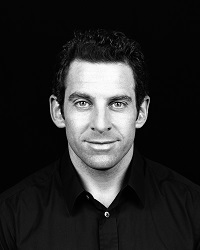 Sam Harris He was born Samuel Benjamin Harris in Los Angeles, California, on April 9th, 1967, to parents Susan Spivak and Berkeley Harris. Susan Spivak, his mother, was a television producer who worked behind the scenes to create a plethora of shows, including a few that became iconic, such as The Golden Girls. Berkeley Harris, his father, was a television and film actor whose most acclaimed film was Shenandoah, the 1965 Civil War Drama. After four years of marriage, the Harris' divorced. At the time, Sam was only two years of age and spent childhood from that point on with his mother. Harris had, as he would describe, a secular upbringing. His father, Berkeley, had a Quaker background, and his mother, Susan, was Jewish, but never practiced. He lived in a humanist environment in his home where the issue of religion was not wholly welcomed. Nevertheless, Harris cultivated an enthusiastic interest in the subject as he matured. He vigorously studied martial arts in his youth. Sam was valedictorian of his high school, but due to fear of public speaking declined the formal valedictorian graduation speech. Sam told the principal he thought the official address should be given by a student who had attended the school for a longer length of time. Following his high school graduation, he attended Stanford University as an English major. During his English studies at Stanford, Harris experimented with MDMA and various other types of drugs. MDMA is the psychedelic drug most commonly known as ecstasy. Those drug-induced experiences had a profound effect on young Sam Harris and led him to begin questioning experiences and beliefs in his life. Specifically, those encompassing religion and philosophy. He equated the drug-induced experiences to spiritual ones and began to ponder whether those kinds of experiences were possible sober. To discover the answer to this puzzle, he left his studies at Stanford between his sophomore and junior year to study meditation under some of the preeminent Hindu and Buddhist teachers in Asia, primarily in India. Upon returning to the United States, he focused on the philosophy of mind. At 30 years of age, in 1997, he returned to Stanford, only this time as a Philosophy major. After completing his degree in Philosophy, with an emphasis on Eastern religions at Stanford in the year 2000, he was admitted into the Ph.D. program at UCLA to study Neuroscience. Later Harris received a Doctor of Philosophy degree in Cognitive Neuroscience from the University of California. During his studies at UCLA, the tragedy now known as 9/11, struck the nation. This ordeal profoundly inspired his first two books. Post 9/11 attack, he started working on his debut book, The End of Faith: Religion, Terror, and the Future of Reason which was published in 2004 where he argues against the supernatural claims made by major Western religions. Belief systems, Harris asserts, inform actions. One could view the social, class, cultural, and ethnic backgrounds of the people who, in his example, commit suicide bombings, and no unifying pattern will appear except the very revealing fact that they have adopted a fundamentalist belief system. Nearly two dozen publishers dismissed this first book, but it ultimately found a home with the publisher W. W. Norton & Company. Instantly it became a bestseller; the book was awarded the prestigious Pen Award for nonfiction and remained on The New York Times Best Seller list for 33 weeks. These achievements catapulted Harris' career into the mainstream. While touring for The End of Faith, another aspect of his career blossomed since Harris became recognized as a talented speaker. His career speaking engagements coincided with the emergence of YouTube making many of his speeches free and easily accessible, which contributed to an increase in Harris' popularity in the public sphere. Regardless of his growing reputation as an atheist, it was rumored Harris was reluctant to use the name to characterize his position. He argues the label does not accurately describe his stance and poses a threat. During the year 2006, he published his reaction to the adverse feedback he obtained for his first book. The small text was formatted as an open missive, entitled Letter to a Christian Nation. Harris readily admits that his writing aims to eradicate any moral or intellectual pretensions presented by Christianity. A bold argument of his centers around the theory of human evolution and our gullibility in believing in supernatural beings, such as a monotheistic God. He postulates that there would have been no natural disasters if there was a Higher Power at work who actually cared about the well-being of humans and other animals, thus critiquing the notion of a loving God as postulated by those championing intelligent design. Following the original Four Horsemen of New Atheism conference in September of 2007, Harris went on to obtain a Ph.D. in cognitive neuroscience. Since then Harris has written and podcasted extensively about consciousness from a materialist, scientific perspective. He is adamant that free will is an illusion. Regardless of Harris' reputation as an atheist, he has also analyzed consciousness and free will from a spiritual outlook and first-person perspective. One of Harris' more intriguing ideas focuses on free will or lack thereof. Harris lays out the argument that the concept of free will is incoherent, and so those who believe they act freely and are responsible for those actions are ultimately duped by their environment and biology. Our choices are composed of thoughts and thoughts that appear in our minds, seemingly without a source. Their existence is the product of a complex nexus of environment and biology. Both of which the person has no control over. If the situation is composed of these conditions, then we cannot accurately claim that such a person has freedom or is responsible for the decisions they make. No clear answer can be given to this conundrum of free will; therefore, the concept must be a false idea. Harris has many critics, including libertarian philosophers, who believe some human actions are genuinely are free. These thinkers contend that this mysterious “appearance” of the thought to select one thing over another and this sentiment that we do conduct free acts is the nature of freedom. Thoughts are mysterious only if one infers that there must be a known continuum that involves other factors like brain events and environmental influences, and the impression that we are in control is the explanation for believing that it is us that provokes the thought into existence. Since his first few books, Harris has written several articles for major news outlets, including The Huffington Post, The Washington Post, Los Angeles Times, and Newsweek. In addition to being a best-selling author, he delivers lecturers at various well-known universities in America and England. Harris has also been featured in the media on numerous talk shows and even in documentaries, including God Who Wasn't There (2005) and The Unbelievers (2013). The Webby Awards featured Sam Harris as a 2017 winner in the general podcast science and education category. Further Reading1. The Moral Landscape: How Science Can Determine Human Values, Free Press; Reprint edition (September 13, 2011) 2. Lying , Four Elephants Press (November 5, 2013) 3. Free Will , Free Press (March 6, 2012) 4. Waking Up: A Guide to Spirituality Without Religion, 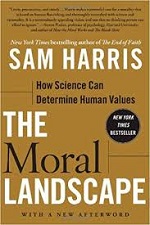 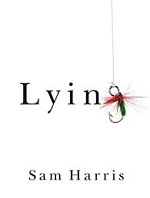 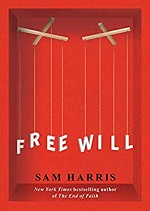 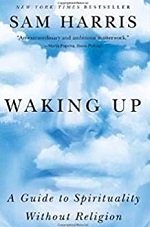
PREFACE | David Christopher Lane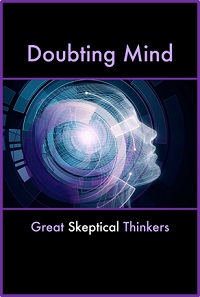
Before the current pandemic altered our day to day lives, the MSAC Philosophy Group had been working on a book entitled, Doubting Mind: Great Skeptical Thinkers, which contained separate essays on a number of notable researchers who champion critical thinking and skepticism when analyzing paranormal claims, such as UFOs, astrology, and various religious claims. The book has now been finished, though it took a bit longer than we anticipated. The word skeptical has too often been conflated with the word cynical. The former term comes from the Greek word skepsis which properly defined means "to look, view, observe." Or, as Miguel de Unamuno explained in 1924 in his book, Essays and Soliloquies, "Skeptic does not mean him who doubts, but him who investigates or researches as opposed to him who asserts and thinks that he has found." To be cynical, on the other hand, indicates that the person is "[pre] disposed to disbelieve or doubt the sincerity or value of social usages or personal character or motives and to express it by sarcasm and sneers, disparaging of the motives of others, captious, peevish." Therefore, it is important to understand that a skeptic is not one who ad hoc dismisses borderland ideas, but is one who is willing to go the extra mile to gather more (not less) information about any given phenomenon. As I have often remarked (to the obvious consternation of certain cult followers), we, humans, are too gullible when we accept miraculous claims without further investigation. We are cheap sluts for the paranormal, believing too easily in conspiracy theories that defy the known law of physics. There are many reasons why this is so, but I suspect that in a world where everything eventually eats one another to survive (whether it be a vegan eating plants or a carnivore eating meat), any organism that can develop a buffering illusion to survive such a horror show has an evolutionary advantage over others that cannot. This came into sharper relief for me this past week as I watching the British made television mini-series, War of the Worlds, where in one particularly poignant scene a mother who has just witnessed the death of her children at the hands of an alien species realizes that there is no point in continuing to live in such a horrific environment. She opts to shoot herself and the viewer instead of being shocked perfectly sympathizes with her decision. Nature is a madhouse if looked at objectively and therefore it is not surprising that we have evolved all sorts of mental defense systems in order to live long enough on terra firma to pass on our genetic heritage. Since we are the survivors in this boiling cauldron of eat or be eaten, we have inherited a variety of tools to ward off the true existential dread that can overcome any being that becomes too keenly aware of how this DNA game plays out. I mention all this as a necessary preface, since no matter how well versed we may become in science (and trained to become good doubters, in the positive sense of that term), we still retain at the core of our beings a deeply emotional component that defies a purely rational or logical way of being. We may act like scientists from time to time, but we are not scientists in the long term. We are vulnerable creatures and our myths and our fairy tales will persist even if we opt for agnosticism or atheism, though they may take on a different color and hue and justifications. Thus, this book provides us with but a small glimpse of how to think more rationally and critically, despite the sobering realization that we cannot be great skeptics all the time.
Comment Form is loading comments...
|